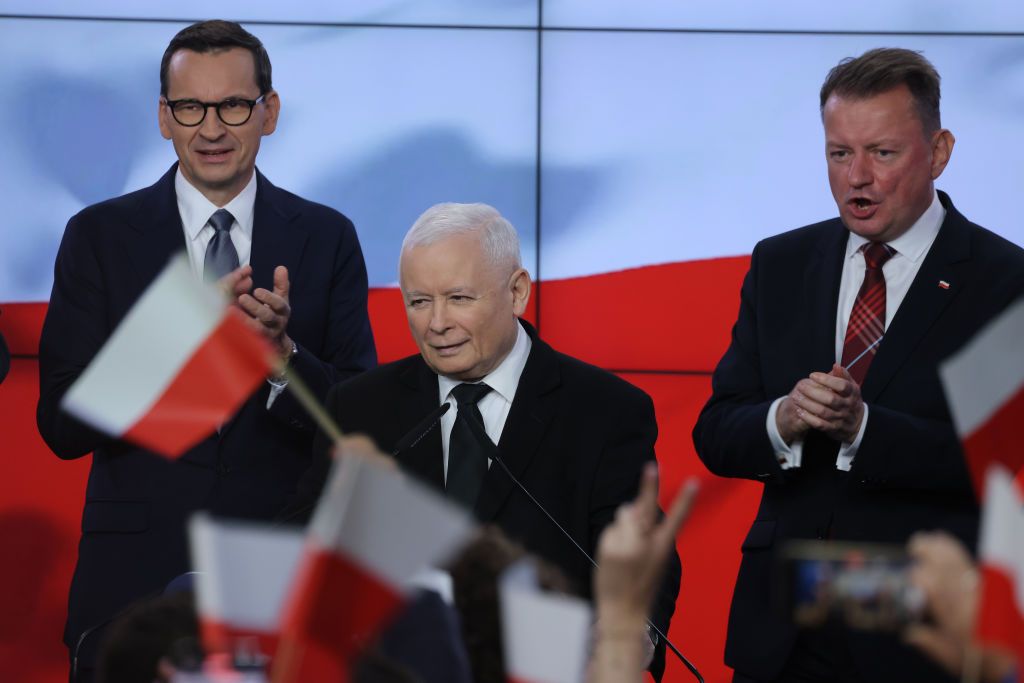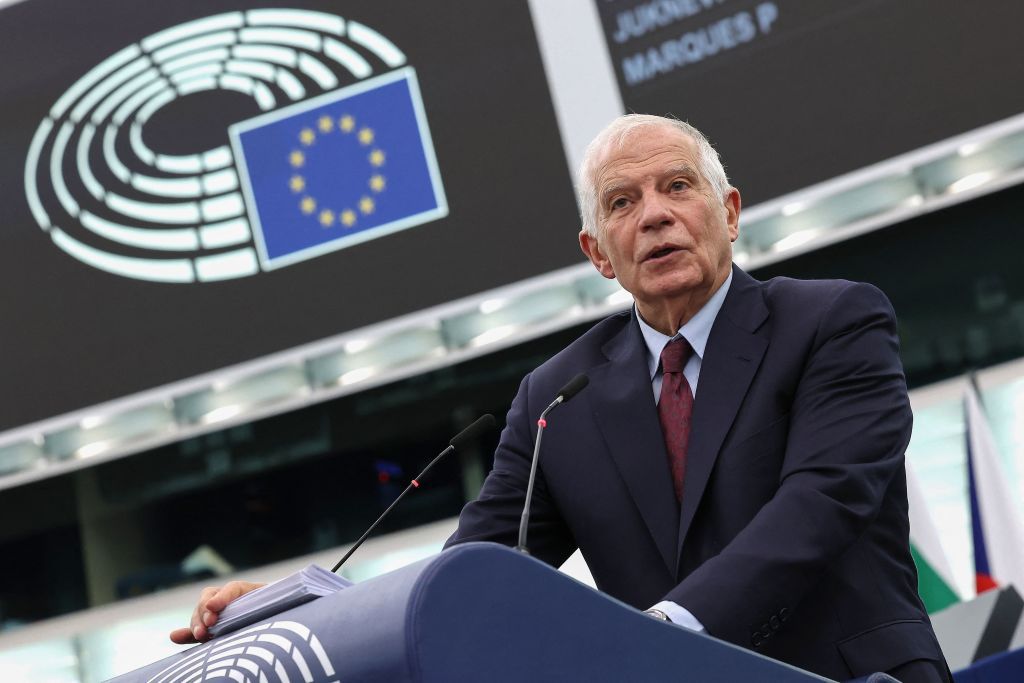Opinion: NAFO is waging Ukraine's meme war

“Attention equals help. No attention will mean no help. We fight for every bit of attention,” President Volodymyr Zelensky remarked in a recent interview. One of the groups that has played a vital role in keeping online attention focused on Ukraine has been the North Atlantic Fellas Organization (NAFO).
This unique assembly of individuals, formed in the wake of Russia's full-scale invasion of Ukraine in 2022, is tackling Russia's formidable propaganda head-on. Their approach is unconventional: They use humor, often through memes, to counter misinformation and raise awareness about the conflict. With no leadership or structure, NAFO's decentralized nature makes it a resilient force against propaganda efforts.
Disinformation has been a critical tool for Russia, used to spread falsehoods and manipulate public opinion through various media channels, including social media. However, NAFO's clever use of memes has proven to be an effective countermeasure against anti-Ukraine pundits.
NAFO gained prominence through its social media presence, particularly for using Shiba Inu dog images to mock Russian propaganda. A running joke within NAFO is that NAFO-affiliated accounts are real Shiba dogs employed by the U.S. Central Intelligence Agency (CIA). NAFO bios on social media often include “[redacted]” for employer info and “Langley, VA” for their location. This “open secret” is so ridiculous that it causes opponents to look foolish when accusing NAFO of being CIA-funded.
NAFO's decentralized group on X (formerly Twitter) made a major impact early in the full-scale invasion by taking down Russia's top diplomat in Vienna, Mikhail Ulyanov, for spreading disinformation. After the Russian ambassador took the time to reply to a meme dog, he left X for several weeks.
The group’s decentralized structure is its greatest strength. Without a centralized organization to target, NAFO remains agile and difficult for adversaries to undermine. This flexibility allows for rapid response and adaptation in the fast-paced environment of information warfare. It's a David versus Goliath scenario, with NAFO using the power of community and humor to challenge Russia’s well-funded propaganda machine.
NAFO’s success has been so significant that RT, the Russian state media outlet formerly known as Russia Today, tried attacking NAFO by labeling it a pro-Ukrainian “bot army.” In July 2023, Russia’s foreign ministry spokeswoman personally took the time to attack NAFO, showcasing how NAFO even troubles the minds of the Kremlin elite.
NAFO's impact extends beyond the digital realm. They have been instrumental in fundraising efforts, supporting Ukraine's war effort through the purchase of drones and other equipment. These contributions have tangible effects on the ground, providing much-needed support to Ukrainian forces.
The NAFO fellas helped raise over $250,000 to help fund naval drones through United24 in 2022. The NAFO Squad drone fundraiser also gathered over $420,000 to help purchase 240 attack drones to strike Russia. This fundraising helps the larger effort. Ukraine has been using aerial and sea drones to constantly attack Russian positions in Crimea and in the Black Sea, preventing Russia from achieving naval supremacy against a foe who arguably has no navy.
NAFO has also helped equip the Georgian Legion (part of the International Legion, under command of the Ukrainian Armed Forces) by fundraising over $175,000 with a branch commander stating that NAFO has helped save lives.
Anyone with an internet connection and a desire to counter misinformation can join the effort. This contrasts sharply with the paid troll factories that Russia employs, providing NAFO with a diverse and dynamic volunteer base. The group's decentralized, fluid structure allows for continuous growth and adaptation, avoiding reliance on specific individuals who may burn out. This fluidity makes NAFO an unpredictable and formidable opponent in the information war.

In trying to undermine NAFO as a whole, Russian-aligned bad actors only waste their time and resources. Without a central structure to target, there's nothing for them to attack. Vasyl Myroshnychenko, Ukraine’s Ambassador to Australia stated that “NAFO is impossible to undermine,” he said. “It is decentralized; it’s just a group of random people.” With no central leader to target and no technical infrastructure to hack, Russia is powerless to stop the collective force of NAFO.
Pekka Kallioniemi, who runs vatniksoup, which provides analysis on Russian propaganda and its actors, stated that ridiculing Russia's disinformation messaging is the best approach to fighting Russia’s lies. Disinformation that is so unbelievable and poorly executed that it’s funny is ineffectual disinformation. By ridiculing Russian propaganda, NAFO disarms it. As a result, NAFO has been the most effective weapon in fighting the Russian disinformation machine, as Ambassador Ulynaov can attest.
NAFO's resilience has been demonstrated repeatedly. Even when individual accounts are attacked or infiltrated, the organization remains strong. Its collective approach to tackling misinformation and fundraising has proven to be effective and difficult for adversaries to combat.
A recent example of this occurred with The Virginia Project account on X, which is a Republican PAC whose X account got into a spat with NAFO fellas after tweeting anti-Ukraine remarks. After aggressively tweeting for several days, the account wrote that “Every single NAFO-associated individual reachable by U.S. law will be sued for the various torts involved in the NAFO terrorist attack on TVP.”
U.S. Senator Mike Lee also devoted considerable attention to NAFO fellas in a series of posts attacking them and calling them a bunch of random meme dogs being funded by the CIA. It’s comical that a U.S. Senator spends his time fighting cartoon dogs while pushing an anti-Ukraine stance. Meanwhile, pro-Ukrainian politicians such as Adam Kinzinger openly identify as NAFO fellas.
However, in November 2023, Giorgia Meloni, believing she was talking to African diplomats who were actually Russian pranksters, stated that European leaders were tired of the war in Ukraine and wanted to broker a deal with the Kremlin to end it. While Western societies may tire and their leaders explore options of appeasement, keeping Ukraine in the spotlight and educating audiences is more important than ever.
The New York Times (NYT) recently published a front-page story with false and misleading statistics erasing the mass killing of Ukrainians and pushing Russian imperial perspectives. This is not new for the NYT, as their own Walter Duranty helped promote Russian propaganda and suppress information on millions of Ukrainians being starved to death in the 1930s. Duranty was even awarded a Pulitzer Prize for his reporting on the USSR, while the Welsh journalist Gareth Jones would pay with his life for exposing the truth. NAFO honors Jones’ memory by continuing to spread the word around the world about what Russia continues to do to Ukraine by continuing its centuries-long genocidal mission.
NAFO represents a new kind of warfare, one fought not with weapons but with memes and solidarity. Its success in fundraising and countering Russian propaganda showcases the power of collective action in the digital age. NAFO's story is not just about countering misinformation; it's about how ordinary people can come together to make a difference in extraordinary times.
In this case, a community of random people around the world masked as Shiba Inu dogs have come to Ukraine’s aid when the country needed it the most.
Editor’s Note: The opinions expressed in the op-ed section are those of the authors and do not purport to reflect the views of the Kyiv Independent.











